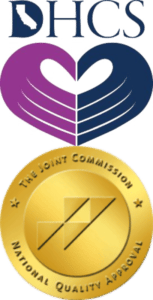Addiction recovery calls for using every effective tool available to achieve recovery. For many people, adding holistic and non-traditional tools like yoga to the recovery toolbox helps boost the chances of success. With yoga, an individual working through addiction has a constructive coping tool. This tool works for the recovery process and the rest of their lives.
When it comes to rehabilitation, the more tools a person has in their toolbox, the better. Yoga is an effective treatment intervention that a person can do on their own. Once a person learns the basics of yoga, they can utilize it on their own – no therapist or prescription necessary.
Utilizing yoga as a coping skill for recovery not only helps with addiction. But practicing yoga is also excellent for mental and physical health.
Yoga has a sacred and ancient history. The exercise is a traditional practice stemming from Indian philosophies. In Sanskrit, the word ‘yoga’ means ‘to unite.’ Yoga strives to establish a union between the body, mind, emotions, and energy – allowing all parts of a person to unify and become whole.
Through its poses and practice of mindfulness, yoga encourages control and calmness. Although yoga was originally a spiritual discipline, it’s utilized by many people worldwide to achieve general well-being.
Throughout its evolution, different schools of thought formed surrounding yoga practice. Achieving unity within the body remains at the core of all yoga philosophies. The differences lie within the practice of yoga poses from school to school.
Some schools of yoga include:
The form of yoga an individual gravitates towards depends on personal preferences, needs, and goals. For example, individuals seeking restoration and a calm environment may prefer Hatha yoga over Kundalini yoga.
With a history that spans 2,000 years, yoga’s benefits are many. According to the National Center for Complementary and Integrative Health (NCCIH), approximately 21 million people in the U.S. practice yoga. People practice yoga to maintain both their physical and mental health. Yoga continues to grow in popularity and is now incorporated into physical therapy programs, schools, and rehabilitation centers.
Ancient practitioners of yoga poses developed yoga poses that are still used today. These yoga poses merge the mind and body. Interestingly, research into yoga shows this to be true.
The journal Brain Plasticity published a 2019 literature review and found that yoga directly impacts the following brain areas:
Yoga changes the brain by increasing blood flow throughout the brain structures above. This improved blood flow may help boost alertness, focus, and memory.
Yoga improves the body’s physical health without strenuous impact or stress. Yoga poses encourage healthy breathing patterns that build up lung capacity. Furthermore, yoga also builds muscle, enhances flexibility, and improves endurance. Yoga also stabilizes blood pressure and reduces lipid levels (fat in the blood) by promoting increased blood flow.)
Where yoga really shines, however, is through its positive benefits on mental health. The American Psychological Association (APA) encourages yoga as an excellent avenue to improve mental health. Regular yoga practice lowers cortisol levels, the hormone associated with stress.
Lower cortisol levels reduce the risks of high blood pressure, obesity, and inflammation. Perhaps most importantly, however, a reduction in cortisol results in a reduction in stress and anxiety.
Although yoga significantly improves brain function, yoga benefits the body in many other ways. Most types of yoga are categorized as light-intensity activities, according to the American College of Sport Medicine. Yoga is an exercise that is relatively healthy for all ages. This is because Yoga does not impact the muscles, bones, and heart as many exercises do.
Many individuals with an alcohol or drug addiction also have trauma histories. If left untreated, trauma can make recovery challenging and increase the chances of a relapse. Yoga allows people with a history of trauma to control their thoughts and emotions.
In addition, practicing yoga poses creates a sense of awareness of one’s body. For physically abused people, yoga lets them reclaim their bodies and re-introduce them to their physical self.
The link between yoga and addiction recovery might seem thin at first glance. However, many of the triggers that result in drug use are mental health related. Improving mental health is essential to a successful recovery from addiction. And yoga is an ideal way to improve mental health.
Addiction programs rely strongly on mental health treatments because addiction significantly impacts a person’s psychological well-being. Additionally, many individuals become addicted to alcohol or drugs due to past trauma. They may also become addicted as a result of self-medication for an undiagnosed mental health condition. Due to yoga’s proven impact on brain health, the practice of yoga has become a powerful tool against addiction.
The brain controls the body, and yoga can activate the areas of the brain that help overcome addiction. Yoga is a strong and quiet response to the loud adversary that is addiction. Physical pain, mental turmoil, cravings, and triggers often hijack the mind, but the elements of yoga (unity and mindfulness) counter these factors. Yoga has the potential to help an individual through addiction rehabilitation and beyond.
No Matter What Recovery offers holistic treatment to every patient, including yoga. We believe that you or your loved one deserves all the tools they need for a successful recovery.
Contact us today to start the journey toward a life without addiction.

